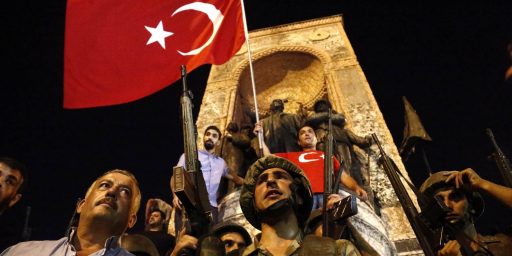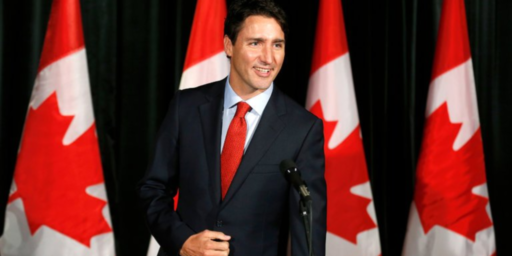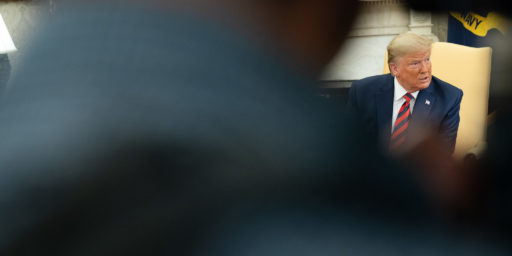Fiji Military Coup
There has been a bloodless coup in Fiji.
Fiji’s military commander said Tuesday that he had seized control of the country and dismissed the elected prime minister after a weeks-long standoff between the two leaders rooted in tension between the South Pacific nation’s indigenous people and its ethnic Indian minority.
Commodore Frank Bainimarama told a news conference that he was using special powers under the constitution to assume the powers of the president and replace Prime Minister Laisenia Qarase. He said he would soon return the powers to President Ratu Josefa Iloilo, who he expected to appoint a full interim government. Elections to restore democracy would follow, he said.
[…]
Bainimarama and Qarase are both ethnic Fijians but Bainimarama, who considers himself as a protector of the rights of all Fijians including ethnic Indians, began threatening in recent weeks to “clean up” the government after it proposed legislation that critics said unfairly benefited the native majority. One bill would have granted amnesty to Fijian nationalists who stormed the parliament six years ago and deposed the country’s first Indo-Fijian Prime Minister, who was eventually replaced by Qarase. Qarase has since won two elections. Another bill would have transferred ownership of valuable coastal property to indigenous Fijians.
Bainimarama demanded the government kill the disputed legislation or be forced out. As the standoff intensified after Bainimarama issued a deadline, Qarase offered to suspend the contentious bills but said he could not agree to demands that went outside the law.
It’s somewhat ironic that this coup is in response to amnesty given to those who staged the last one. Indeed, were I prime minister, I would be very much in favor of a no coup policy and would be quite disinclined to offer amnesty to those who perpetrate them.
The idea that the military should have special powers to oust the government, let alone over seemingly minor legislation, is quite bizarre from a Western perspective. In much of the developing world, though, it’s a natural phenomenon. In many former European colonies, the military is the strongest, most trusted institution and often the only one that has transcended tribal and sectarian divisions.





